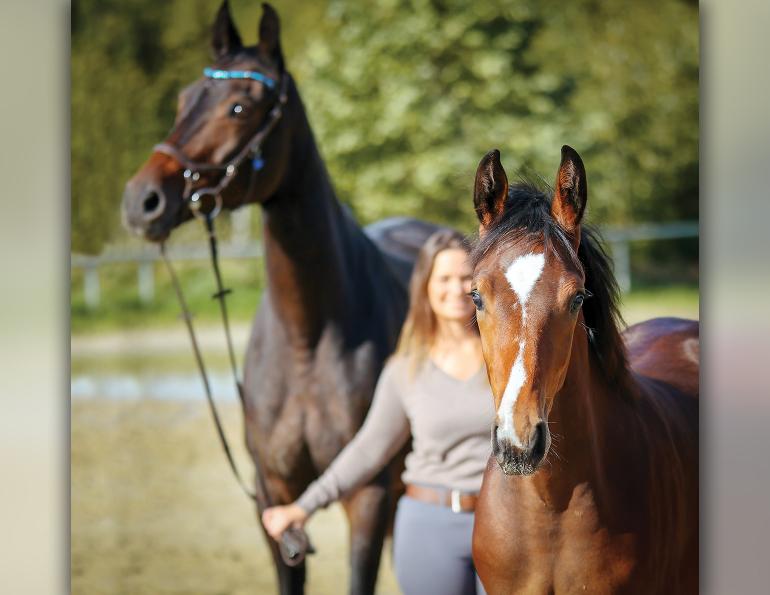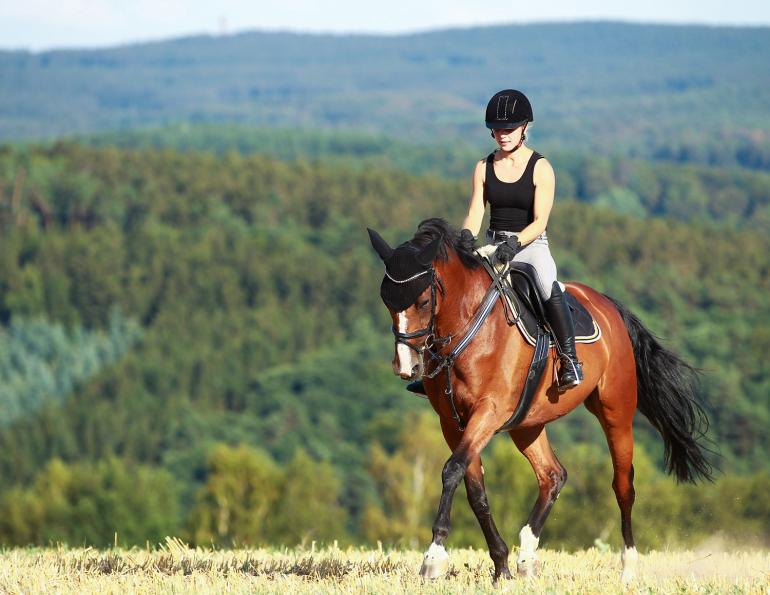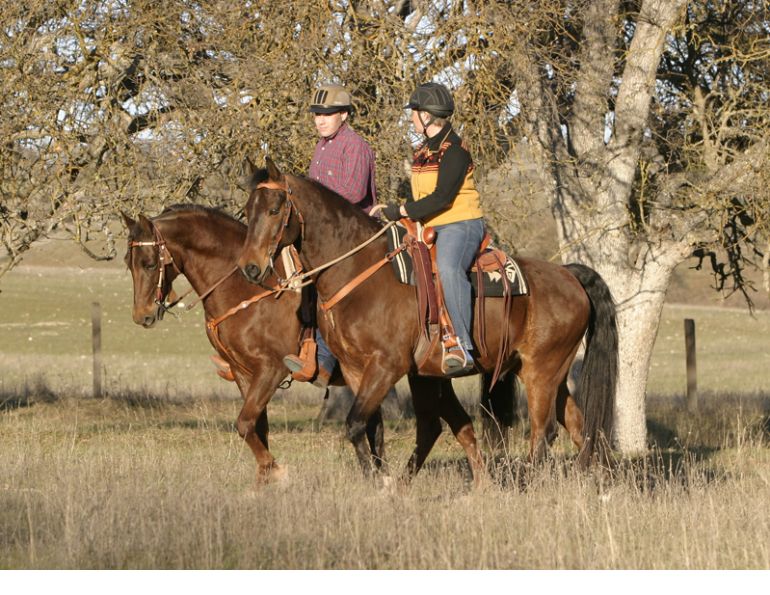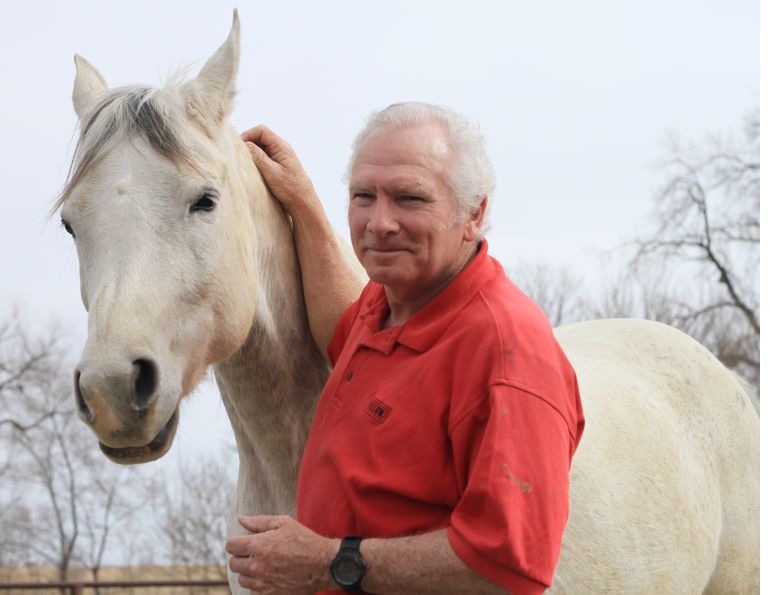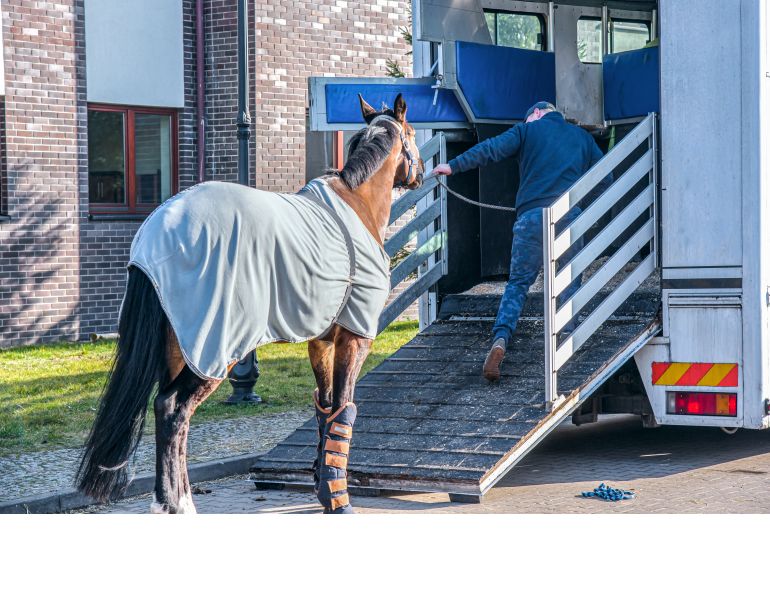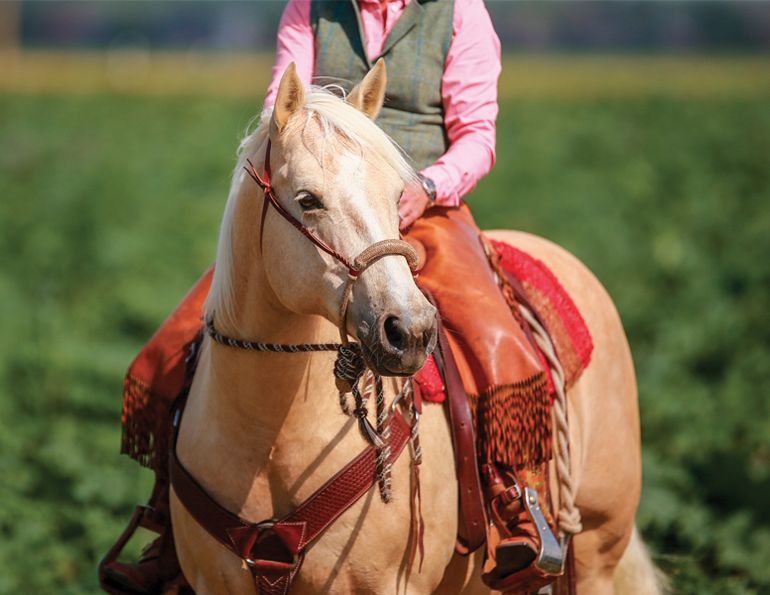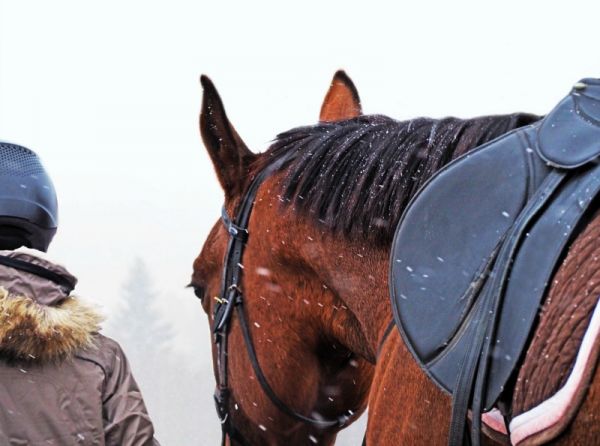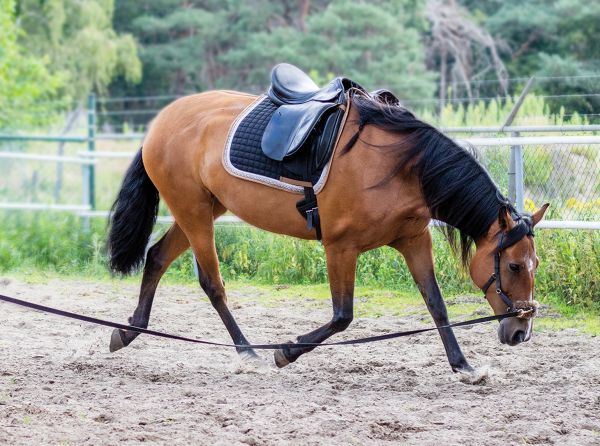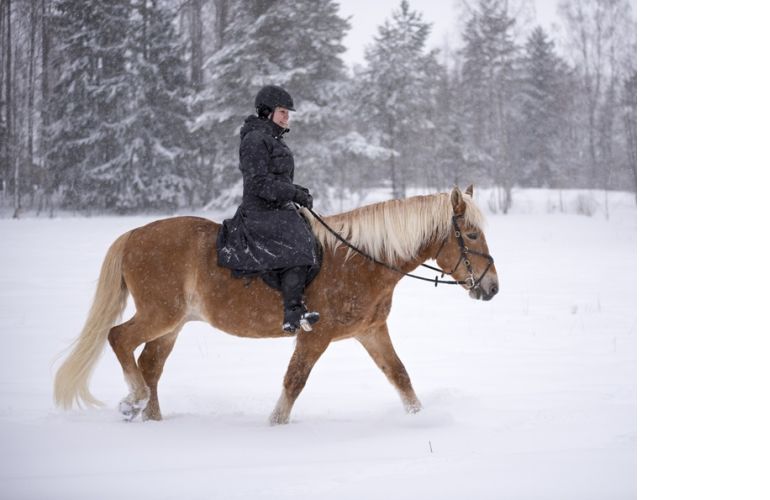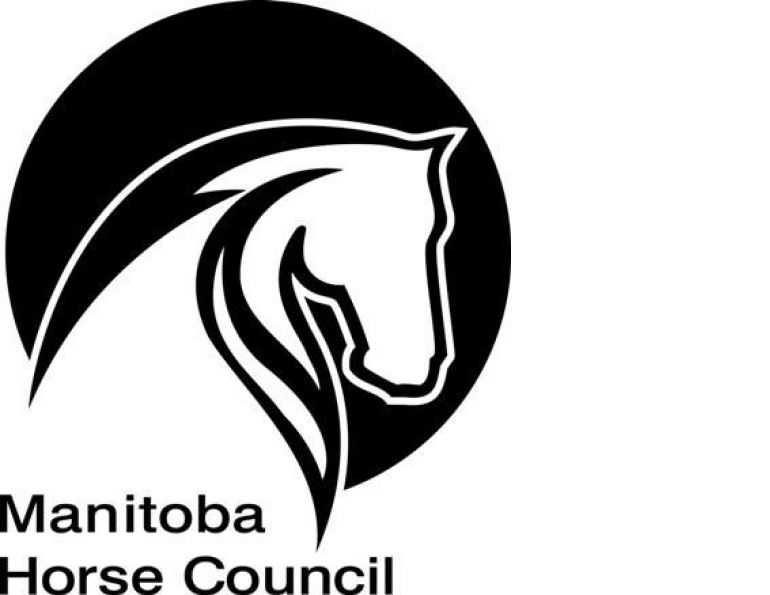How clear communication and great preparation is your best support for an easy transition.
By Alexa Linton, Equine Sports Therapist
I want you to recall one of your last major transitions. It might have been at work, at home, with family, a move, even a birth or death. Estimate your stress levels during that transition on a scale of one to ten. Typically, our stress levels rise during times of transition, even if the change is good and we’ve had lots of time to prepare.
Now, think about your horse’s last major transition. Did you notice increased stress in the form of tension, health issues, or a change in behaviour during this time? Imagine what it might be like for you to have no time to prepare for a big life-changing transition. What if a move or the loss of your best friend happened with no warning? How would this increase your stress levels?
Most transitions our horses move through happen with little to no preparation of the horse; the majority are human-created transitions that the horse has no say in. I often work with horses that have been impacted by transitions physically, emotionally, and in other ways. This type of abrupt transition can cause trauma, even if it occurred a long time ago. A good example is the impact of weaning, which often happens with no preparation of the mare or foal and has the potential to create long-term attachment and trust issues. It can then be disruptive and destabilizing for the whole herd.
Related: Fear in the Saddle: The Visceral Response - Part 1
With a few simple but perhaps humbling steps, we can ease transitions for our horses and build trust at the same time. First, let’s look at what makes up a transition.
Essentially an impactful transition can be any event or situation where there is a change to your horse’s environment, whether it involves their herd or their location; an injury, especially one requiring challenging treatment or a substantial amount of pain; isolation or stall rest; introduction of an unknown stimulus, like noisy construction equipment; a new rider, handler, or trainer; and training milestones such as their first saddling, ride, or trailer trip. These transitions affect each horse differently depending on their level of confidence, trust, and sense of safety. A horse that has experienced significant trauma might have a stronger reaction to transitions, finding them challenging and displaying behaviour or symptoms showing their stress.
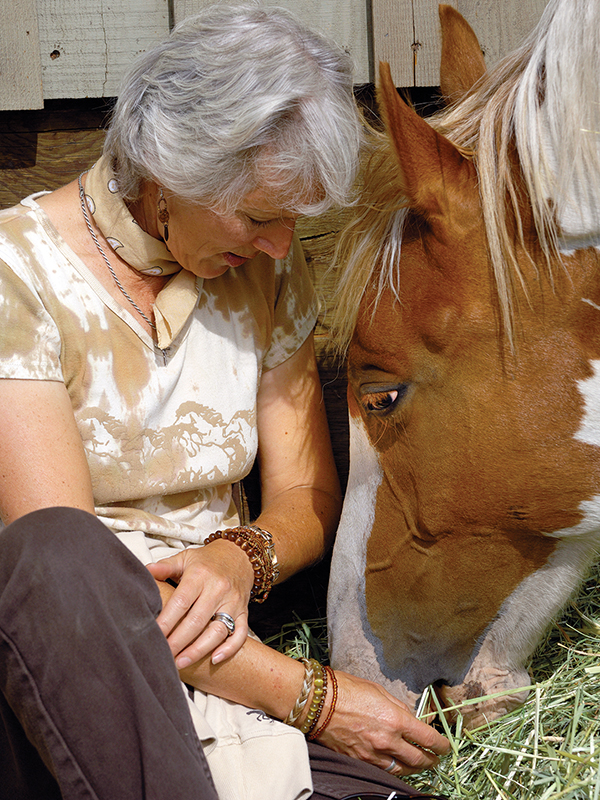
Be that wonderful person in your barn who can be found sitting in the stall talking to your horse. Photo: Clix Photography
In order to support our horse with transitions, we need to have an understanding of the nervous system, specifically the autonomic nervous system, which functions in all mammals to keep us safe. Within the context of this nervous system, our view of behavioural responses to transitions changes significantly. (On this topic, I highly recommend the excellent work of Sarah Schlote of Equusoma. With a more thorough understanding of the autonomic nervous system, we build more empathy for our horses and their experiences and signs of stress, and connect more easily with their needs for connection and safety.
In the autonomic nervous system we have hyperarousal states, with related sympathetic pathways including flight and fight responses, and hypoarousal states, with the dorsal vagal (parasympathetic pathways), including fawn, freeze, and collapse. In a state of safety and regulation, both parasympathetic and sympathetic are working together to support healthy function. When there is a major stressor, this system supports the horse’s attempt to stay safe, moving him through various survival states depending on the situation. Dr. Peter Levine, founder of Somatic Experiencing®, defines trauma as “experiencing fear in the face of helplessness.” Essentially, it is an activated and even frozen state that occurs when there is an incomplete response to a threat.
Related: Looking Beyond "Problem Horses"
In addition, our nervous system is a mirror to that of our horse, meaning that one nervous system can coregulate with another. This is why being in a healthy well-regulated state yourself allows you to support your horse to feel safe during change; and being stressed and dysregulated yourself, or reactive to your horse’s stress, will often increase his feelings of mistrust or incidence of protective behaviour.
Let’s take the example of weaning to explore the function of the autonomic nervous system. Rather than seeing a mare newly weaned from her foal as overreactive or dramatic, we begin to see a very understandable flight or fight (sympathetic) response, as she attempts to protect herself and her foal from harm. We might also see a collapse (dorsal vagal) response, if she appears depressed or resigned once she realizes her actions will not bring back her foal (remember the definition of trauma above). We may see similar responses in the foal.
Without adequate preparation, this kind of sudden detachment can be traumatizing to both mare and foal. It can cause deep wounding to the nervous system, often presenting as an inability to connect, health issues related to stress, behavioural reactivity, and hypervigilance. The impact of these traumas can last a lifetime — I recently worked on a 42-year-old horse that needed support to heal the emotional wounding that occurred at his weaning. All the more reason to do it in a supportive way from the beginning.
What does “supportive” look like when it comes to transitions? It looks different for every horse. With weaning and many other transitions, thoughtful compassionate preparation involves putting yourself in your horse’s hooves to determine which actions would be most supportive. By taking the time now to support their health for many years to come, you’re making a solid investment in the horse’s future. Many foals are weaned too early, before they are ready and mature enough for this step. Often this is because of human agendas and timelines, and money. Is it worth it? As someone who works with the trauma of weaning later on in the horse’s life — and this kind of wound is very hard to heal — I can unequivocally say that it is never worth it. Generally, a mare will start to show signs of impatience and a foal will show an increased desire to explore their environment. These cues indicate that a transition is beginning to occur organically. It’s much easier for all to go with the flow, rather than fighting it.
Your preparation for any transition, including weaning, needs to include titration, which is essentially many small and digestible steps that take the state of the nervous system and related stress levels into account. A successful weaning would be one with little to no calling or stress. The foal is integrated into their new herd or environment over the course of weeks in increasing intervals, returning to the mare for regulation and safety each time. Preferably, mare and foal can see each other, and the mare can be an anchor for her baby to feel comfortable while exploring a new world. Starting with just outside the paddock, progressively increasing the distance between mom and foal can help both settle into the change. Often having a well-picked herd-mate, or yourself, act as a safe anchor can ease stress. The key words are peaceful, easeful, and empathetic. You can apply this to any transition you are working with. Is it possible? Absolutely. Is it extra work? For sure. But that work will pay off for everyone with happy, healthy, well-regulated horses who trust their humans and are able to think, learn, and adapt.
Related: What Does My Horse Really Need?
One of the other helpful supports is talking to your horses. Share about any transitions upcoming, talk them through the process, show them pictures in your mind of what is being planned or where they are going to be living next, and even work with an animal communicator to truly involve your horse in the process. From my experience, horses that are treated as the intelligent beings they are and included in the process are much more settled during times of transition. Combining this with preparation is ideal. When preparation isn’t possible, communicating in this way and working with your own system to find a well-regulated state can help your horse adapt more easily. As an example, when moving to a new barn, the preparation might be trailer loading practiced in a relaxed way. If possible, go to the new barn for a quiet ride in the ring, wander around the property, then head back home to the safe zone, all while communicating to your horse about the coming transition and paying attention to his overall state of being.
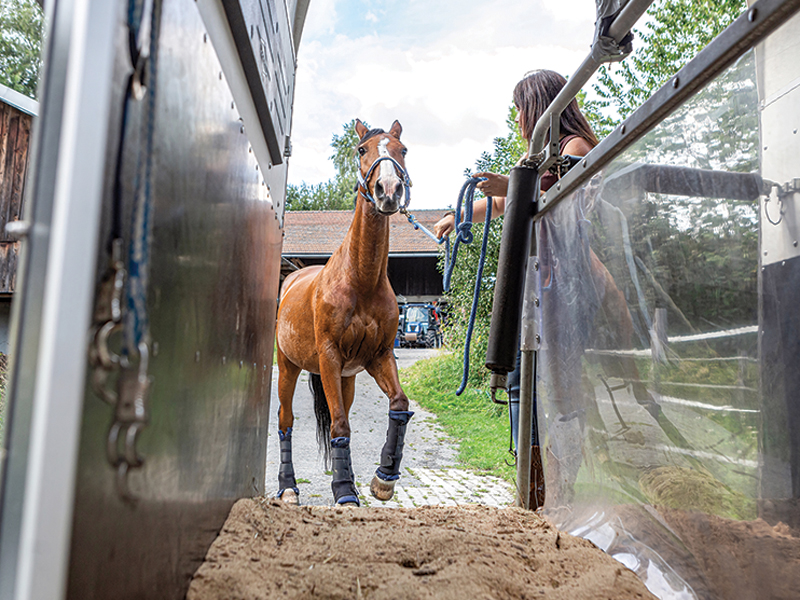
The first trip in a trailer is an important transition for the horse and a stressful experience can cause lasting trauma. Photo: AdobeStock/Annabell Gsöd
In a conversation about transitions, there are always circumstances we cannot prepare for, such as an evacuation or more commonly, the death of a herd-mate. There is one thing that is remarkably helpful in the case of a herd-mate passing: Allow your horses to be with the body, whether you lead them to it and stand with them or allow them to be free in the space. Horses grieve in community, and the process of being with the body allows them to integrate what has occurred in a physical sense.
For more on this important topic, please read Help to Navigate Your Horse’s Final Transition, and listen to my episodes on this topic at The Whole Horse Podcast.
I try to reframe transitions as times that hold great potential for trust-building, listening, and growth of relationship when handled with care, empathy, and regard for the horse’s experience. On the other hand, transitions done on a strict agenda, with stress and without preparation, can weaken the relationship and degrade trust.
Don’t be afraid to be that weird and wonderful person in your barn who chats to your horses! I’m sure more than a few readers will say that I am anthropomorphizing. My response is that our nervous systems function exactly the same way as do those of our horses; trauma occurs in the same way, and their emotions are just as real as ours. Just because we’ve done things a certain way for a long time doesn’t mean there isn’t a better way, it just means we’ve grown accustomed to the familiar.
This article is an invitation to try something new and see how it feels for you and your horses — this is a transition of sorts! Wishing you and your horses ease and peace in your future transitions.
Related: How to Build Confidence in Your Horse
Related: Equitation Science
Photo: Rolf Dannenberg



